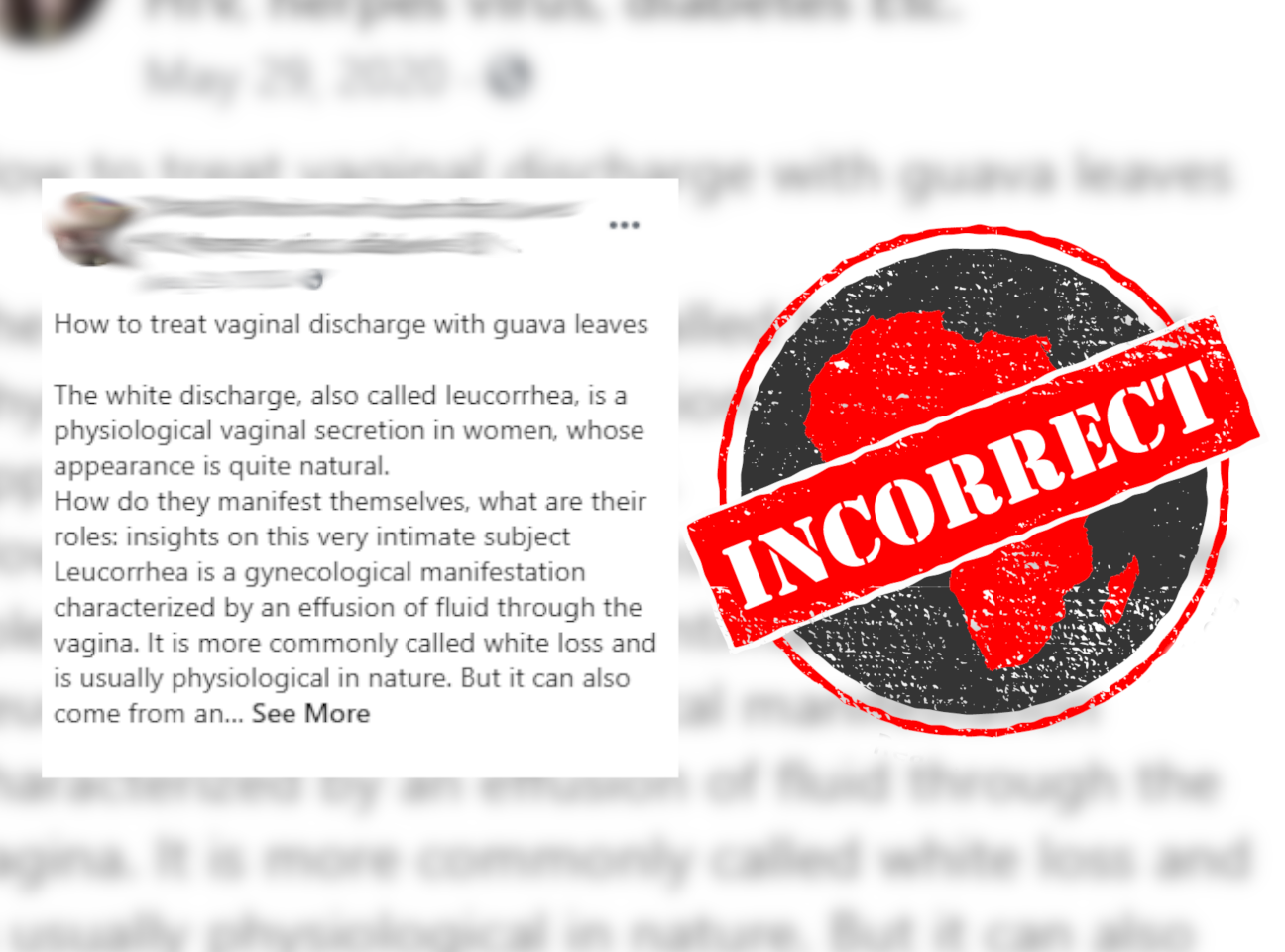“How to treat vaginal discharge with guava leaves,” reads the headline of a message posted on Facebook in Nigeria in May 2020.
“Ingredients - 25 leaves of guava. 2 liters of water preparation and user's guide. Pour the guava leaves in a saucepan with two liters of water and leave on fire for 1 hour. Remove it, let it sit and then use the liquid to wash the vaginal area. Repeat this treatment twice a day, for a full week.”
Guava, with the botanical name Psidium guajava, is a fruit and small tropical tree from the Myrtaceae family. The fruit is round to pear-shaped, and edible.
But can guava leaves be used to treat vaginal discharge?

Not scientifically proven
Vaginal discharge is the way a woman’s body expels fluid made up of dead cells and bacteria. This process is normal. Abnormal vaginal discharge has a different colour and smell.
“I’m not aware of such a procedure, and we don’t practice it,” John Ekabua, a professor of adolescent gynaecology and reproductive health at Nigeria’s University of Calabar, told Africa Check.
Aloysius Inofomoh, a consultant obstetrician at Chygor-Cole Specialist Hospital in Lagos state, said: “I don't know of any way guava leaves treat vaginal discharge.”
He added: “Guava is a fruit which, when consumed, can give calories and vitamins. Good hygiene will help keep a woman’s genitals clean and healthy.”
Republish our content for free
For publishers: what to do if your post is rated false
A fact-checker has rated your Facebook or Instagram post as “false”, “altered”, “partly false” or “missing context”. This could have serious consequences. What do you do?
Click on our guide for the steps you should follow.
Publishers guideAfrica Check teams up with Facebook
Africa Check is a partner in Meta's third-party fact-checking programme to help stop the spread of false information on social media.
The content we rate as “false” will be downgraded on Facebook and Instagram. This means fewer people will see it.
You can also help identify false information on Facebook. This guide explains how.


Add new comment